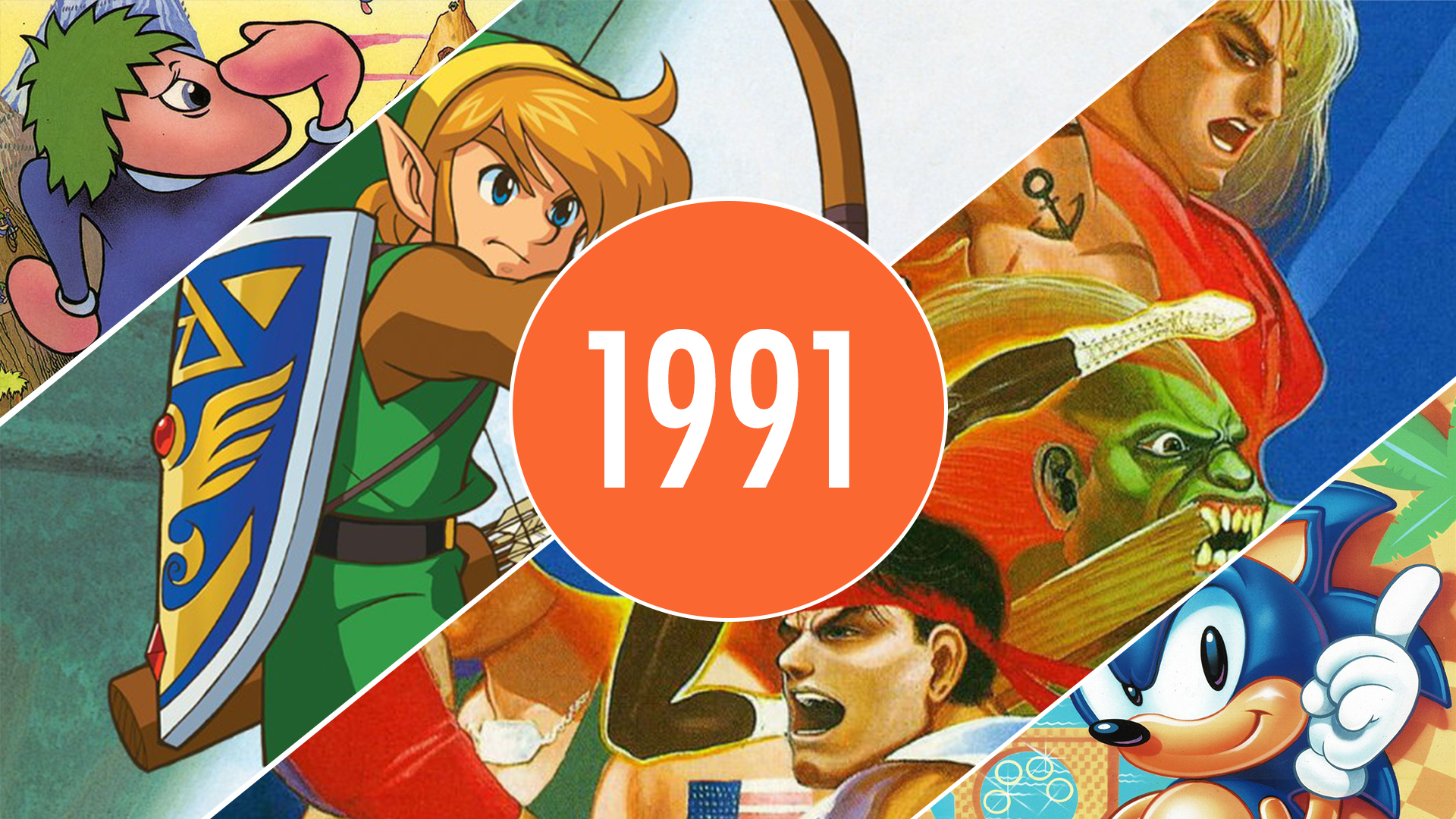
1991 is the year that the 16-bit era came of age. Four years into the fourth generation of home consoles, developers unleashed a barrage of impressive, influential, and innovative video games that are as important today as they were for the time. Few years can lay claim to such a status, but then few years are blessed by the releases of games like The Legend of Zelda: A Link to the Past and Another World.
The SNES landed on American shores in 1991, and with it, Sega finally found itself a worthy competitor for the Mega Drive / Genesis (sorry, PC Engine) in western territories. While players in North America were enjoying Super Mario World, F-Zero, and Pilot Wings, it was those in Japan that really felt the weight of Nintendo's growing mastery of the action-adventure genre. The Legend of Zelda: A Link to the Past isn't just remembered as one of the greatest games of its time; it still is one of the greatest games of all time. Gorgeous world, visual, and audio design, impeccable pacing, and engrossing combat worked to establish the game as legend, while its implementation of a light and dark world mechanic ensured that A Link to the Past would continue to subvert expectations for generations to come.
Of course, A Link to the Past wasn't the only release that made waves in 1991. It was the year that Sega launched one of the true icons of the industry, with Sonic the Hedgehog making his debut on the Sega Genesis. That mascot would go on to propel the game maker forward in its attempts for dominance over Nintendo, while the momentum generated by this first game would ensure that Sonic is as beloved today as he was the first time he stepped out under the Sega Blue Skies of the Green Hill Zone.
While Nintendo and Sega battled it out over mascots, other publishers were simply getting their heads down – innovating and refining gaming's biggest genres. Street Fighter 2: The World Warrior was a breakout arcade hit, one that raised the benchmark so high that it hasn't, arguably, ever been cleared again. While Capcom locked up dominance over the fighting game genre, Square unleashed Final Fantasy 4 (originally titled Final Fantasy 2 outside of Japan) and with it, the Active Time Battle system, a method for governing RPG combat that still influences genre games to this day.
1991 also saw the debut of Lemmings, Neverwinter Nights, Road Rash, and others, but there's one game it's worth pulling the spotlight onto: Another World. The cinematic platformer from Delphine Software isn't as easily remembered as the other games from 1991, but it was arguably more important for those that work behind the pixels and polygons. Another World was truly ahead of its time; a visionary, forward-thinking action game that astounded players with its minimalistic style, hands-off storytelling, and evocative approach to difficulty, exploration, and progression. 1991 is often remembered for the influence it had on future generations of game makers, but the truth is, with games like A Link to the Past and Another World, it was the year that the 16-bit era truly came of age.
Games that defined 1991
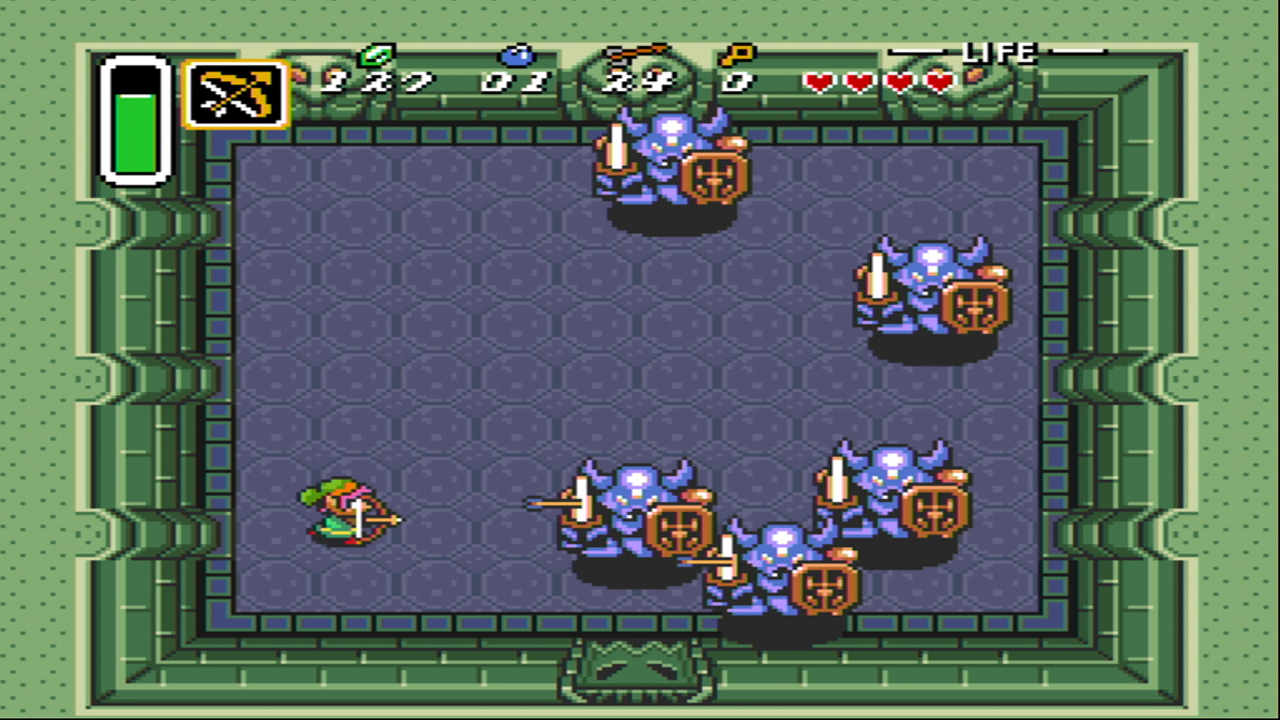
The Legend of Zelda: A Link to the Past
The Legend of Zelda has always reinvented itself between releases. In the early days of the series, that was a result of Nintendo attempting to settle on a foundational structure that would work for the franchise. Following A Link to the Past, it was a necessity, because Nintendo knew that it had bottled lightning here. A truly astounding adventure game that is still virtually peerless; were A Link to the Past the only game to release in 1991, it would still (probably) be considered one of the best years for gaming.
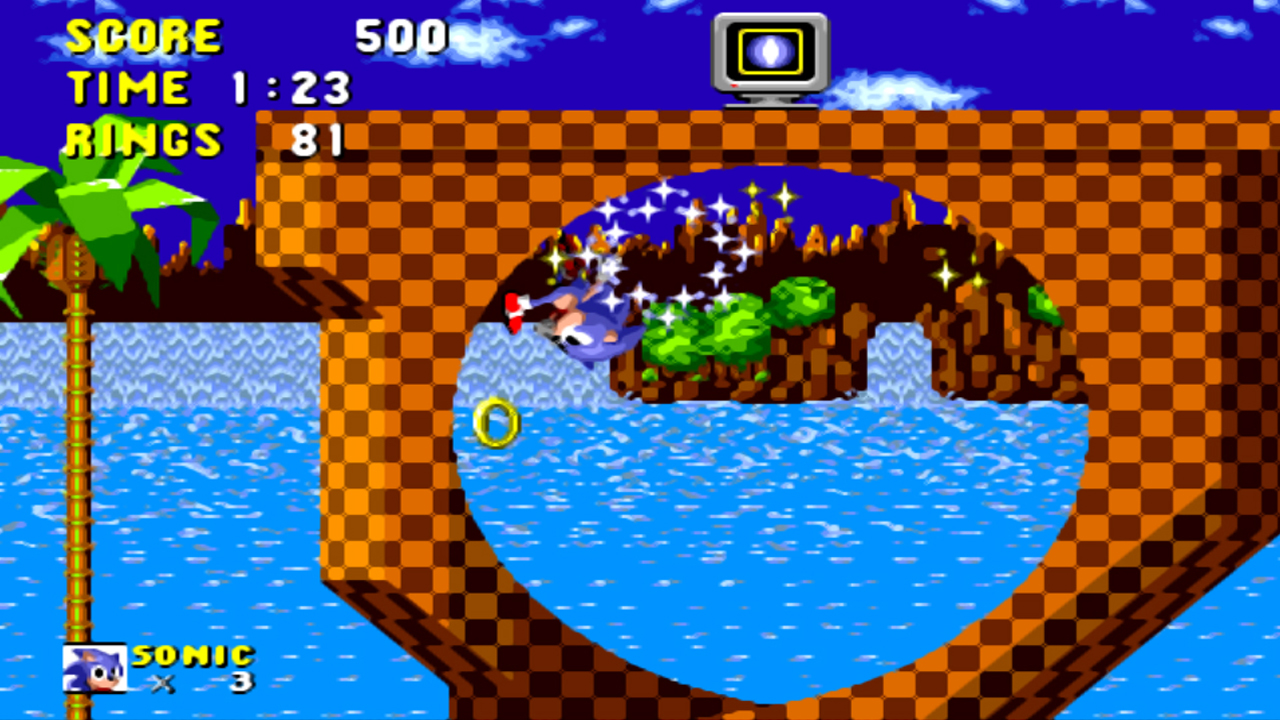
Sonic the Hedgehog
As I described above, this spot should belong to Another World, but it took a little while before the mainstream took notice of its brilliance. So instead, we'll focus on a game that didn't just help define 1991, but the identity of Sega itself, and arguably gaming as a whole, for the rest of the decade. Fun, energetic, and just eminently playable, Sonic the Hedgehog gave a generation of players a need for speed, while introducing the entire games industry to one of its biggest mascots.
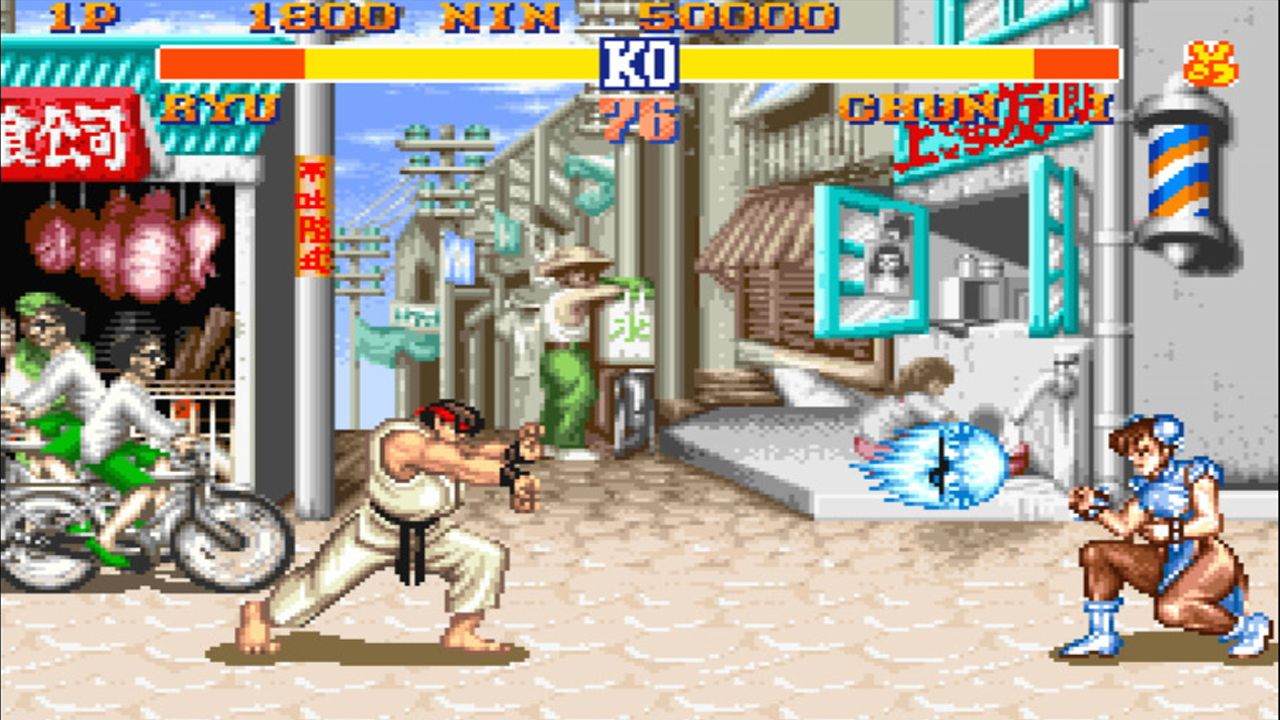
Street Fighter 2: The World Warrior
Will competitive fighting games ever escape the shadow cast by Street Fighter 2: The World Warrior? It's likely that they never will. When Capcom unleashed Street Fighter 2, it changed everything; the game was a truly revolutionary moment for the genre, credited with single-handedly revitalising the ailing arcade scene. It arrived with stunning balance and a diverse and interesting roster of brawlers that helped popularise competitive multiplayer, while introducing that all-important combo mechanic to the genre.
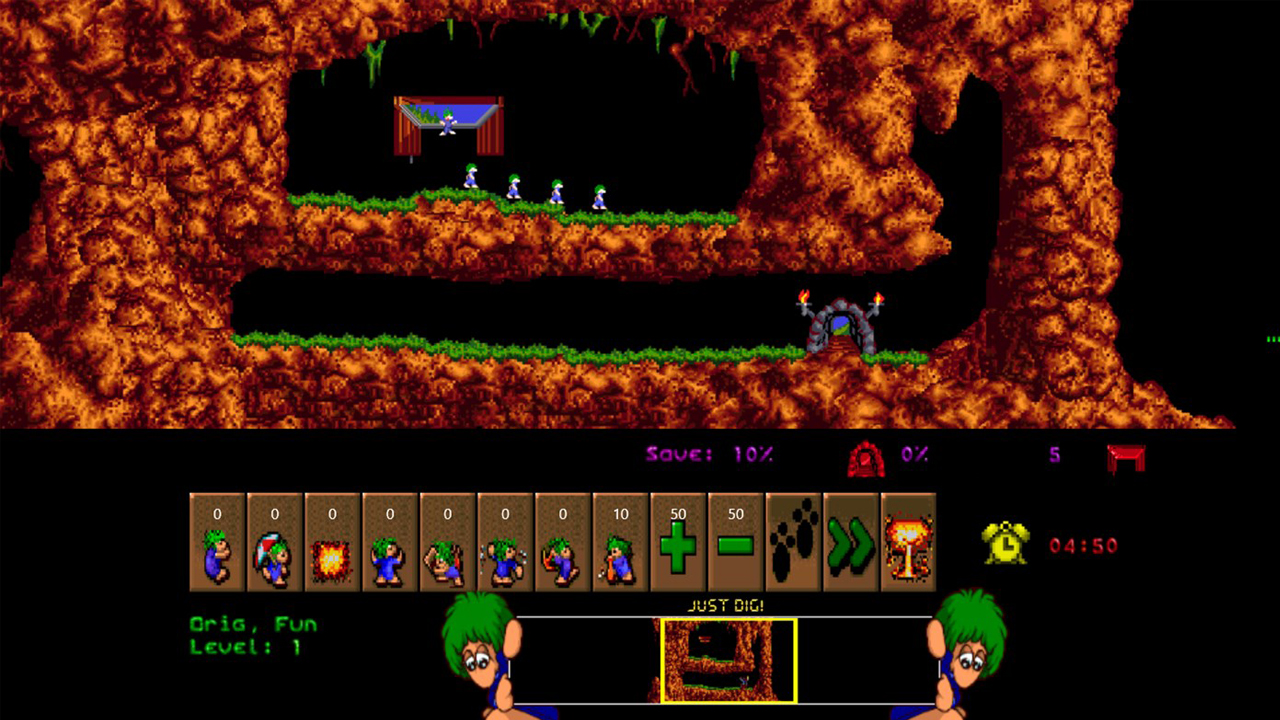
Lemmings
Without Lemmings, there would be no Grand Theft Auto. Probably; I'm not an alternate history teacher. But I do know that Lemmings put the fledgling DMA Design on the map; it's smart design and moreish loop made it a huge success, allowing the studio to expand. Just seven years later, DMA traded pushing lemmings to their deaths for exploring the streets of Liberty City, San Andreas, and Vice City.
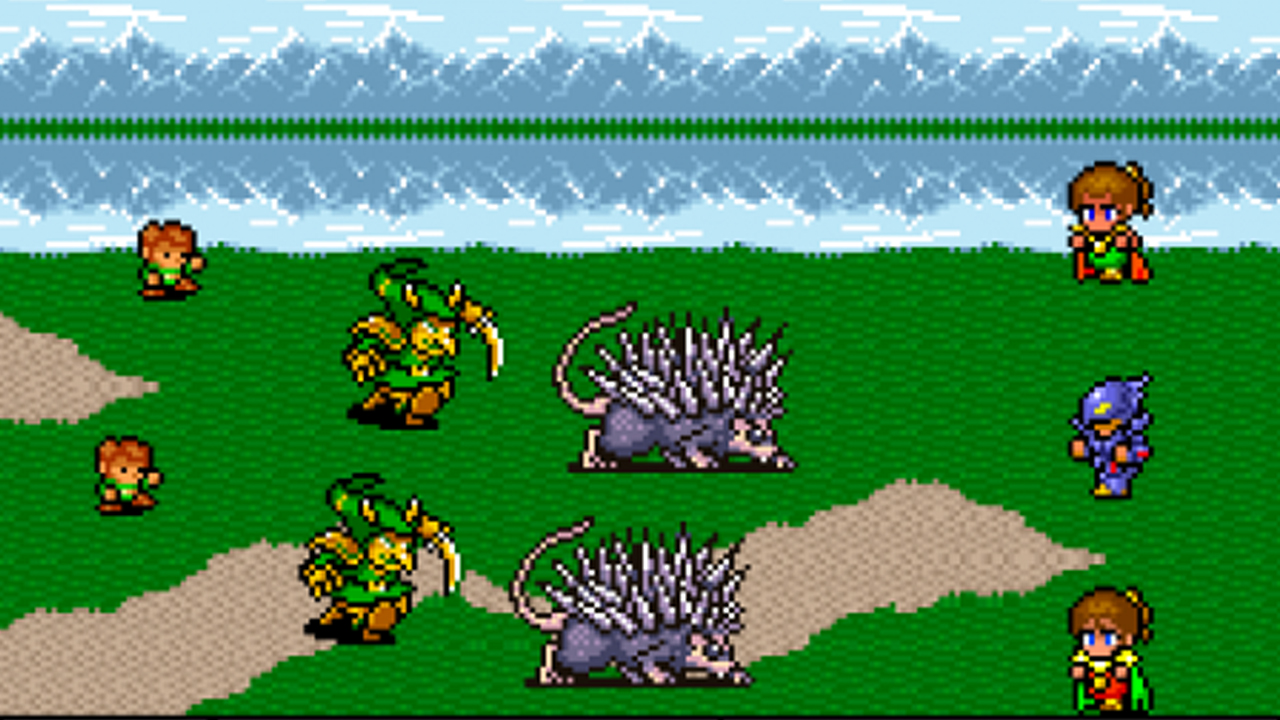
Final Fantasy 4
When Final Fantasy 4 launched in the summer of 1991, there wasn't really anything quite like it. It's now considered to be a pioneer for the modern JRPG, establishing so many of the storytelling techniques, combat systems and mechanics that you will recognise in genre games today. A fantasy adventure with high stakes, massive drama, and strong characters; Final Fantasy 4 was a bold template for where the series would go next.
Weekly digests, tales from the communities you love, and more

Josh West is the Editor-in-Chief of GamesRadar+. He has over 15 years experience in online and print journalism, and holds a BA (Hons) in Journalism and Feature Writing. Prior to starting his current position, Josh has served as GR+'s Features Editor and Deputy Editor of games™ magazine, and has freelanced for numerous publications including 3D Artist, Edge magazine, iCreate, Metal Hammer, Play, Retro Gamer, and SFX. Additionally, he has appeared on the BBC and ITV to provide expert comment, written for Scholastic books, edited a book for Hachette, and worked as the Assistant Producer of the Future Games Show. In his spare time, Josh likes to play bass guitar and video games. Years ago, he was in a few movies and TV shows that you've definitely seen but will never be able to spot him in.


